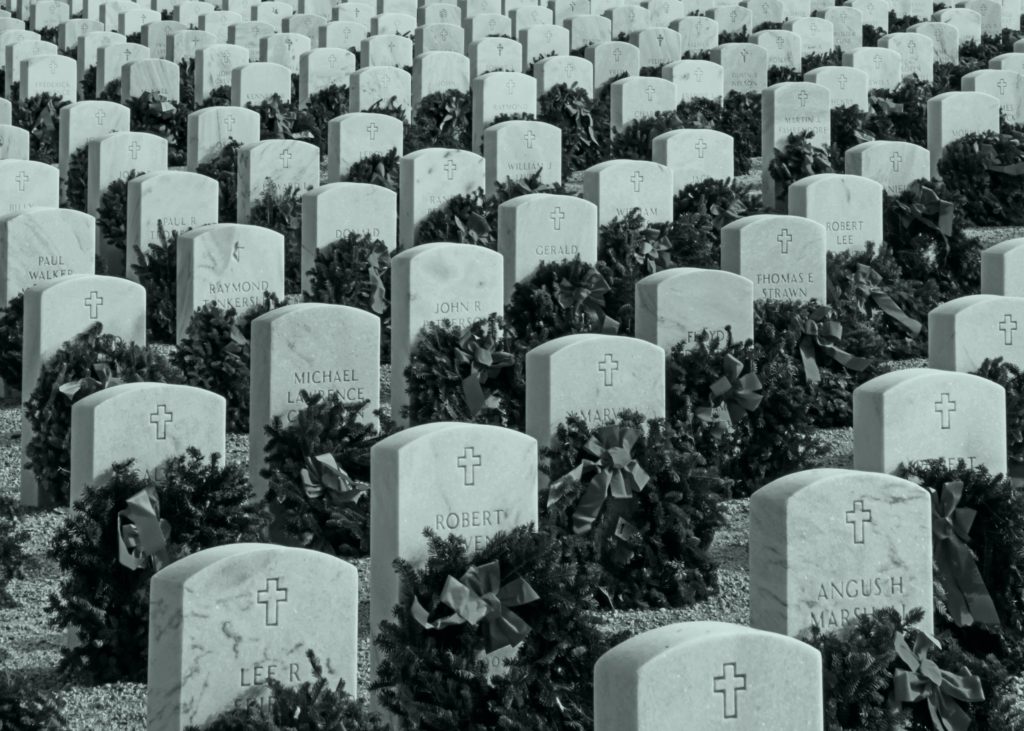
Published May 30, 2022
Today, most Americans are celebrating Memorial Day with a barbecue or maybe a boating expedition—ringing in the unofficial start of summer with the traditional rites of recreation that mark our cultural calendar. A smaller, dwindling number are likely to mark the day as Memorial Day, a solemn memorial to the hundreds of thousands of soldiers who made the ultimate sacrifice in service to our nation. Among Christians from more liturgical traditions, yesterday saw the celebration of Ascension Sunday, when the church historically honors the enthronement of the Prince of Peace as ruler over all nations.
This juxtaposition of Memorial Day and Ascension Sunday is apt to give us pause. Is there something wrong, after all, with the swelling pride of patriotism, with the veneration of martyrs to national honor, in a world in which the reign of Christ has relativized all national loyalties and in which the only martyrs who finally matter are those who bear Christ’s banner? Christians have asked such questions for centuries. Today, a rising chorus is prepared to dismiss observances like Memorial Day as jingoistic nationalism, a glorification of violence that Christians should oppose. But this is terribly shortsighted.
Click here to keep reading on WORLD Opinions.
Brad Littlejohn (Ph.D., University of Edinburgh) is the founder and president of the Davenant Institute. He also works as a fellow at the Ethics and Public Policy Center and has taught for several institutions, including Moody Bible Institute–Spokane, Bethlehem College and Seminary, and Patrick Henry College. He is recognized as a leading scholar of the English theologian Richard Hooker and has published and lectured extensively in the fields of Reformation history, Christian ethics, and political theology. He lives in Landrum, S.C., with his wife, Rachel, and four children.
Photo by Mark Duffel on Unsplash
Brad Littlejohn, Ph.D., is a Fellow in EPPC’s Evangelicals in Civic Life Program, where his work focuses on helping public leaders understand the intellectual and historical foundations of our current breakdown of public trust, social cohesion, and sound governance. His research investigates shifting understandings of the nature of freedom and authority, and how a more full-orbed conception of freedom, rooted in the Christian tradition, can inform policy that respects both the dignity of the individual and the urgency of the common good. He also serves as President of the Davenant Institute.










